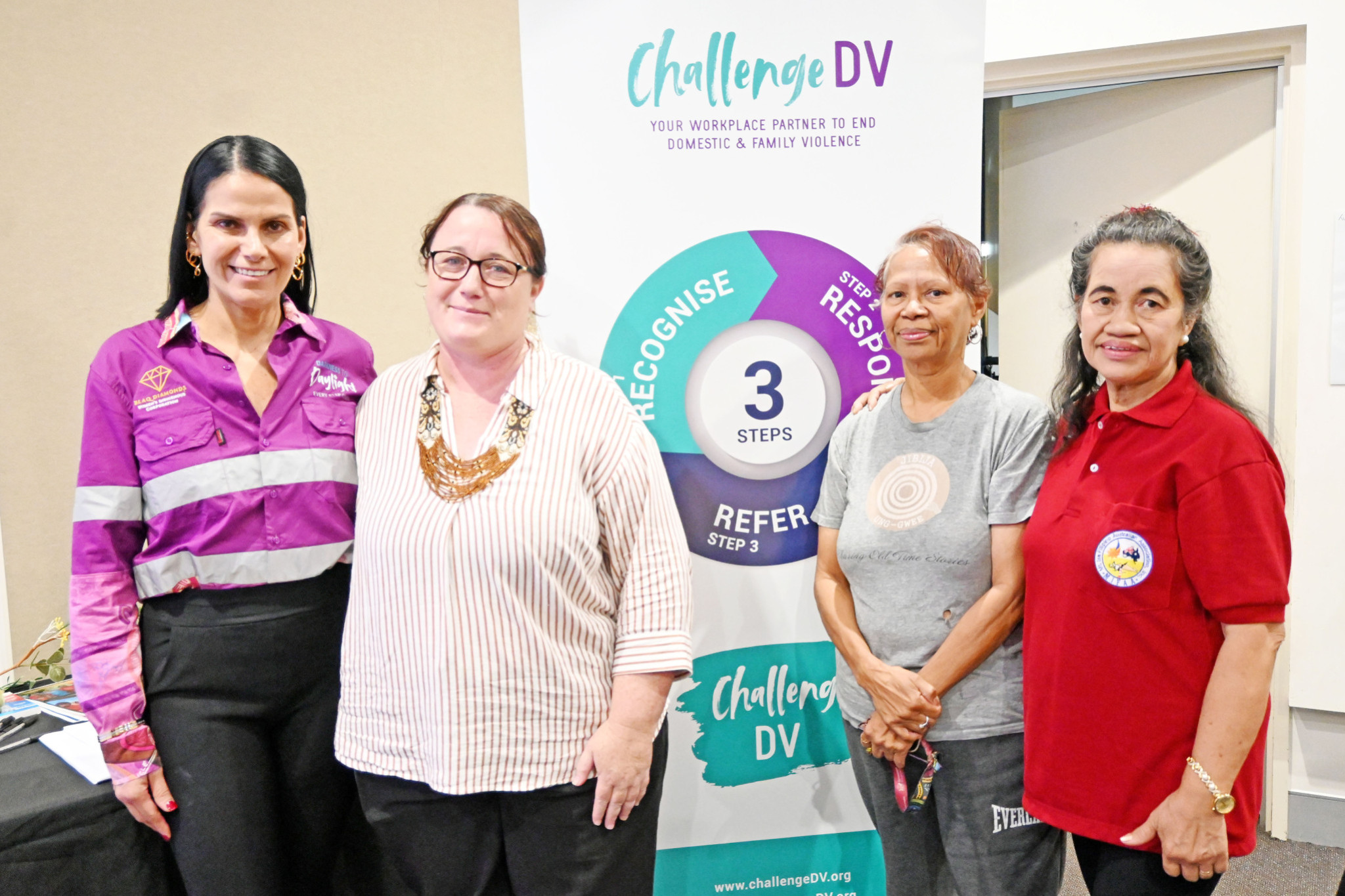Community
2 April, 2025
Education is key to DV reduction in migrant households
Members of Mount Isa's multicultural community attended a workshop aimed at DV education.

Migrant community leaders are better equipped to help women and children in threatening and dangerous domestic relationships following a new education campaign in Mount Isa.
With some reports claiming up to one-third of new migrant and refugee women confront domestic violence across the nation, it has been recognised there is a strong need to inform newly arrived women of their rights under Australian law if they are unsafe as well as the various social service assistance programs available.
Under the three-pronged mantra of “Recognise, Respond and Refer,” cultural leaders were given instruction on signs of an unhealthy or threatening relationship and the actions that can be taken to help the vulnerable people remove themselves from that situation.
Challenge DV workplace program manager Juliana Mantilla, who delivered the education program alongside Ethnic Communities Council of Queensland research and policy manager John Bosco, said domestic violence was best tackled through prevention.
“Many migrant women face visa dependency and financial dependency and they often don’t know where to turn because they do not have a support network of family or friends around them,” she said.
“This is a community that is more likely to face violence, so it is a community we need to reach out to.”
Community Action for a Multicultural Society (CAMS) coordinator Therese Sexton said cultural groups had requested a domestic violence information campaign in the city to help group leaders become better educated on the services available.
“We are delivering what the community has asked for and we are trying to empower community groups,” she said.
“Our cultural leaders are a bit better informed about what domestic violence is in the Australian context and the hope is if they have family members or friends that are in DV situations, they are better able to respond.”
While she is not from a migrant background, former social worker Fiona Hill was keen to attend the event to find out the latest services available for vulnerable families in the city.
“I have been out of the social service sector for 10 years and I saw this promoted and wanted to find out the latest information,” she explained.
“Education is very important in Mount Isa because we have limited resources – so anything that allows people to leave the fear and educate themselves is a positive step.
“When women can see it is not just happening to them, it allows them for form support groups and heal.”
Mount Isa Filipino-Australian Association president Edna Anderson said women in a threatening environment are more likely to initially seek help from someone from the same cultural background.
“This kind of information will help if someone comes to us and says they need help,” she said.